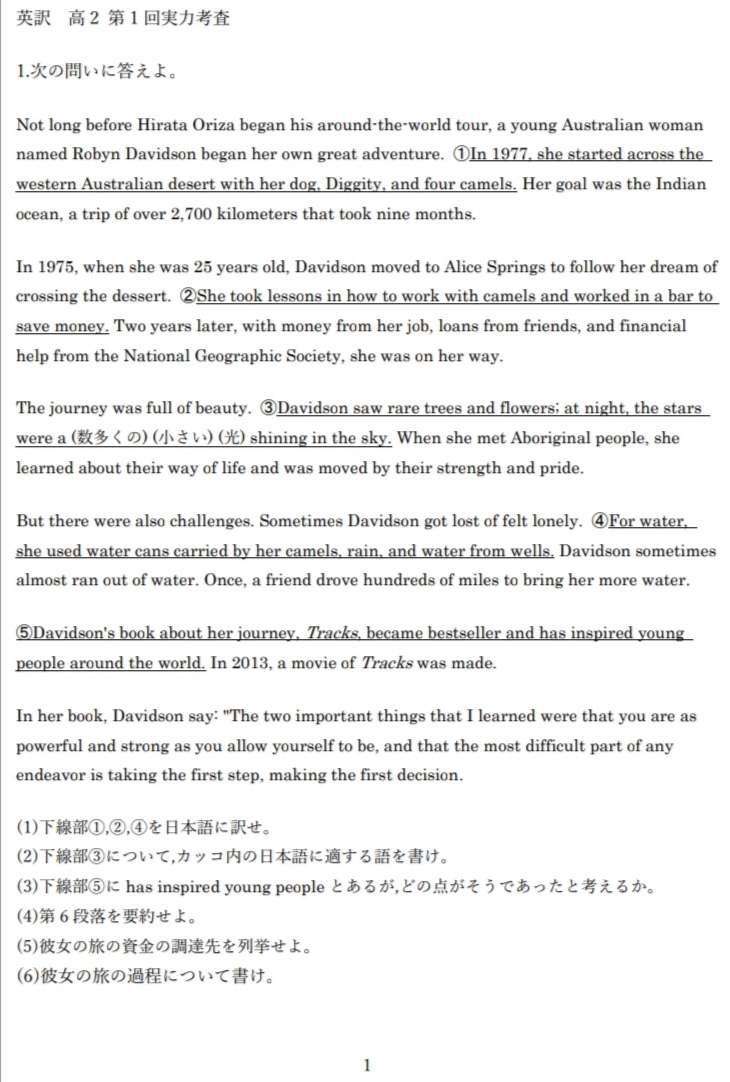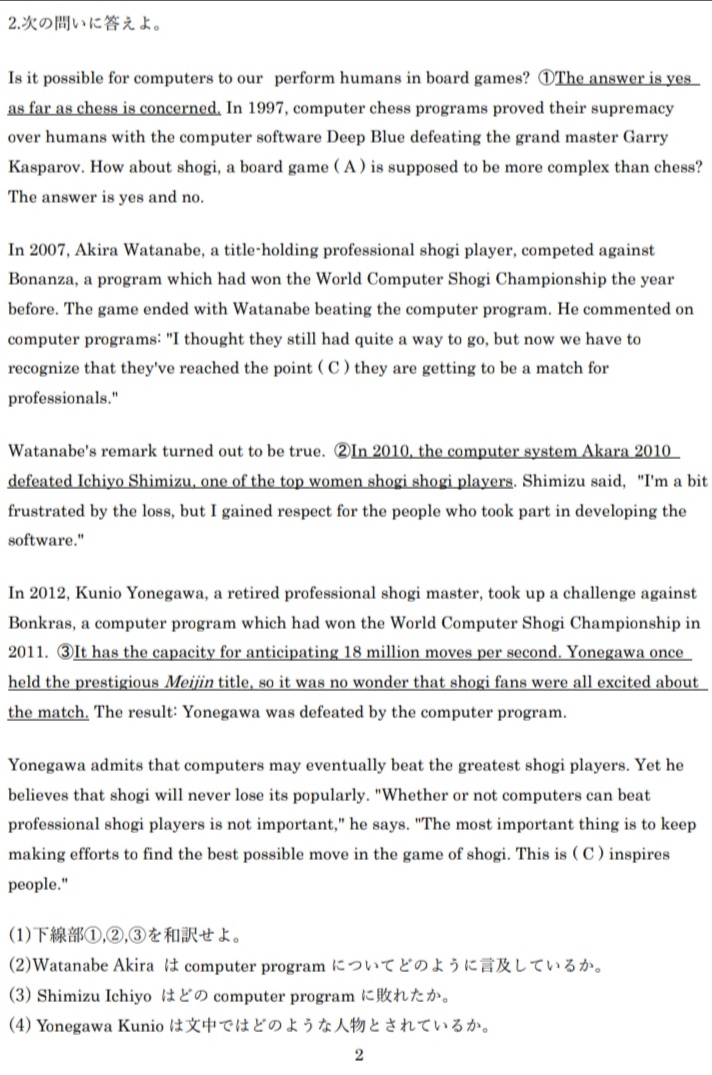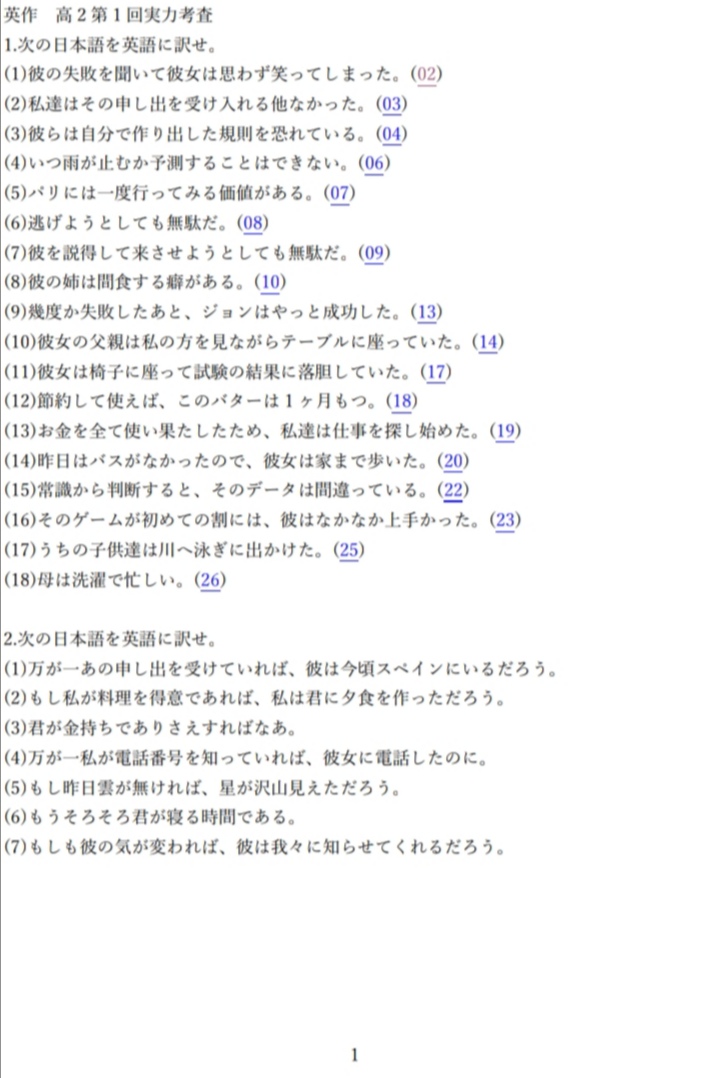
1.Across the Australian Outback
Not long before Hirata Oriza began his around-the-world tour, a young Australian woman named Robyn Davidson began her own great adventure. In1977, she started across the western Australian desert with her dog, Diggity, and four cammels. Her goal was the Indian ocean, a trip of over 2,700 kilimeters that took nine months.
In 1975, when she was 25 years old, Davidson moved to Alice Springs to follow her dream of crossing the dessert. She took lessons in how to work with camels and worked in a bar to save money. Two years later, with money from her job, loans from friends, and financial help from the National Geographic Society, she was on her way.
The journey was full of beauty. Davidson saw rare trees and flowers; at night, the stars were a million tiny lights shining in the sky. When she met Aboriginal people, she learned about their way of life and was moved by their strength and pride.
But there were also challenges. Sometimes Davidson got lost of felt lonely. For water, she used water cans carried by her camels, rain, and water from wells. Davidson sometimes almost ran out of water. Once, a friend drove hundreds of miles to bring her more water.
Davidson's book about her journey, Tracks, became bestseller and has inspired young people around the world. In2013, a movie of Tracks was made.
In her book, Davidson say: "The two important things that I learned were that you are as powerful and strong as you allow yourself to be, and that the most difficult part of any endeavor is taking the first step, making the first decision.
2.Computers vs. Human Shogi Players
Is it possible for computersto ourperform humans in board games? The answer is yes as far as chess is concerned. In 1997, computer chess programs proved their supremacy over humans with the computer software Deep Blue defeating the grand master Garry Kasparov. How about shogi, a board game which is supposed to be more complex than chess? The answer is yes and no.
In 2007, Akira Watanabe, a title-holding professional shogi player, competed agatinst Bonanza, a program which had won the World Computer Shogi Championship the year before. The game ended with Watanabe beating the computer program. He commented on computer programs: "I thought they still had quite a way to go, but now we have to recognize that they've reached the point where they are getting to be a match for professionals."
Watanabe's remark turned out to be true. In 2010, the computer system Akara 2010 defeated Ichiyo Shimizu, one of the top women shogi shogi players. Shimizu said,"I'm a bit frustrated by the loss, but I gained respect for the people who took part in developing the software."
In 2012, kunio Yonegawa, a retired proffesional shogi master, took up a challenge against BOnkras, a computer program which had won the World Computer Shogi Championship in 2011. It has the capacity for anticipating 18 million moves per second. Yonegawa once held the prestigious Meijin title, so it was no wonder that shogi fans were all excited about the match. The resule: Yonegawa was defeated by the computer program.
Yonegawa admits that computers may eventually beat the greatest shogi plyaers. Yet he believes that shogi will never lose its popularly. "Whether or not computers canbeat professional shogi players is not important," he says. "The most important thing is to keep making effforts to find the best possible move in the game of shogi. This is what inspires people."



